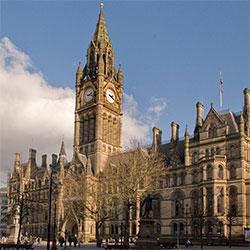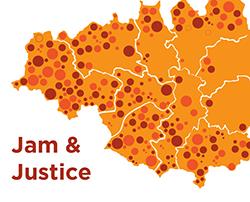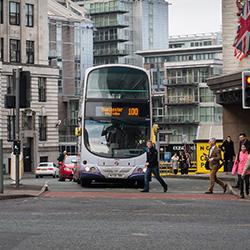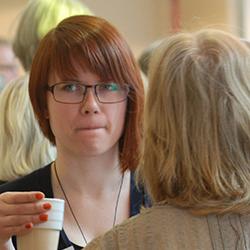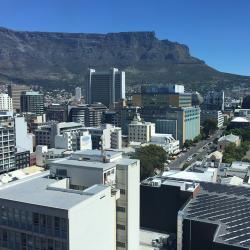
Participatory Cities
How do we create more participatory cities? How can citizens be engaged in decisions about urban development, strategy and policy? What change mechanisms are needed to support more democratic urban governance? This project brings together analysis and action across the Local Interaction Platforms in three ways: first, it provides a lens for analysing our comparative portfolio to ask what we can learn about co-producing participatory cities with citizens; second, it directly researches and tests the theory and practice of participatory urban governance through innovative mechanisms and pilots; third, it will scope the possibility of a set of locally-based but internationally connected initiatives to lobby for more co-ordinated action to increase participatory urban governance.
From citizen involvement in urban planning processes through to municipal energy strategies, neighbourhood budgets, or citizen juries, diverse forms of citizen participation are increasingly embedded in a wide range of governance practices. For some, greater citizen engagement has adopted an almost panacea-like character, capable ‘not only… of addressing issues of poverty and social justice; it is also a means of tackling the growing democratic deficit that is now widely discussed in both “mature” and “emerging” democracies’ (Gaventa 2004: 26). In an epoch where inequality is becoming increasingly severe on a global scale (Piketty 2013), and in which far-right nationalisms and a fear of the Other is becoming dominant, the search for solutions that are just – both in process and in outcomes - is as urgent as ever.
What is leading to more included citizens?
Yet is participation itself a normative goal? Does including citizens in decision-making necessarily lead to more just, sustainable, equitable or legitimate outcomes? To what extent do ‘co-productive’ practices between metropolitan governments and citizens, or between researchers and stakeholders either hinder or help us in developing our ‘freedom to make and remake our cities and ourselves’ (Harvey 2008)? What are the tensions and trade-offs between inclusion and exclusion/consensus and dissensus in urban politics? Where, why and how do forms of co-production between state and citizens lead to empowerment and an opening towards different urban futures? Or where, why and how do they act as a form of ‘capture’ that contributes to the foreclosure of alternatives? This comparative enquiry investigates these issues across our LIPs, both in respect of our own projects and the wider urban contexts in which they are located.
Usefulness
The project will produce: analyses across LIPs of what works in participatory urban governance; local impacts in terms of mechanisms for citizen participation; learning about the LIP model.The output of the project will not only be academic, but also produce user-friendly summaries – for instance in relation to SDG 11/16 - policy recommendations, and other kinds of media including the evidence, findings and reflections.
USEFUl INFORMATION AND STORIES FROM UK and SWEDEN
Rapport: Meningsfullt deltagande S Isemo & M Forsberg 2019 PDF
How social innovation can support citizen participation
Sharing, learning, connecting: Gothenburg exchange 12-15 March 2019
New municipalism - (Re) Claiming Democracy
On changing the world: learning and reflections from Gothenburg visit
Co-Production: Working with Local Democracy
From Greater Manchester to Barcelona and back again: lessons on co-production and digital democracy
"There's no co-production panacea"
Is co-production possible in planning? Notes from a roundtable on participatory cities
Participatory Cities and Urban Justice
Photo: Juan Ignacio Tapia at unsplash.com
